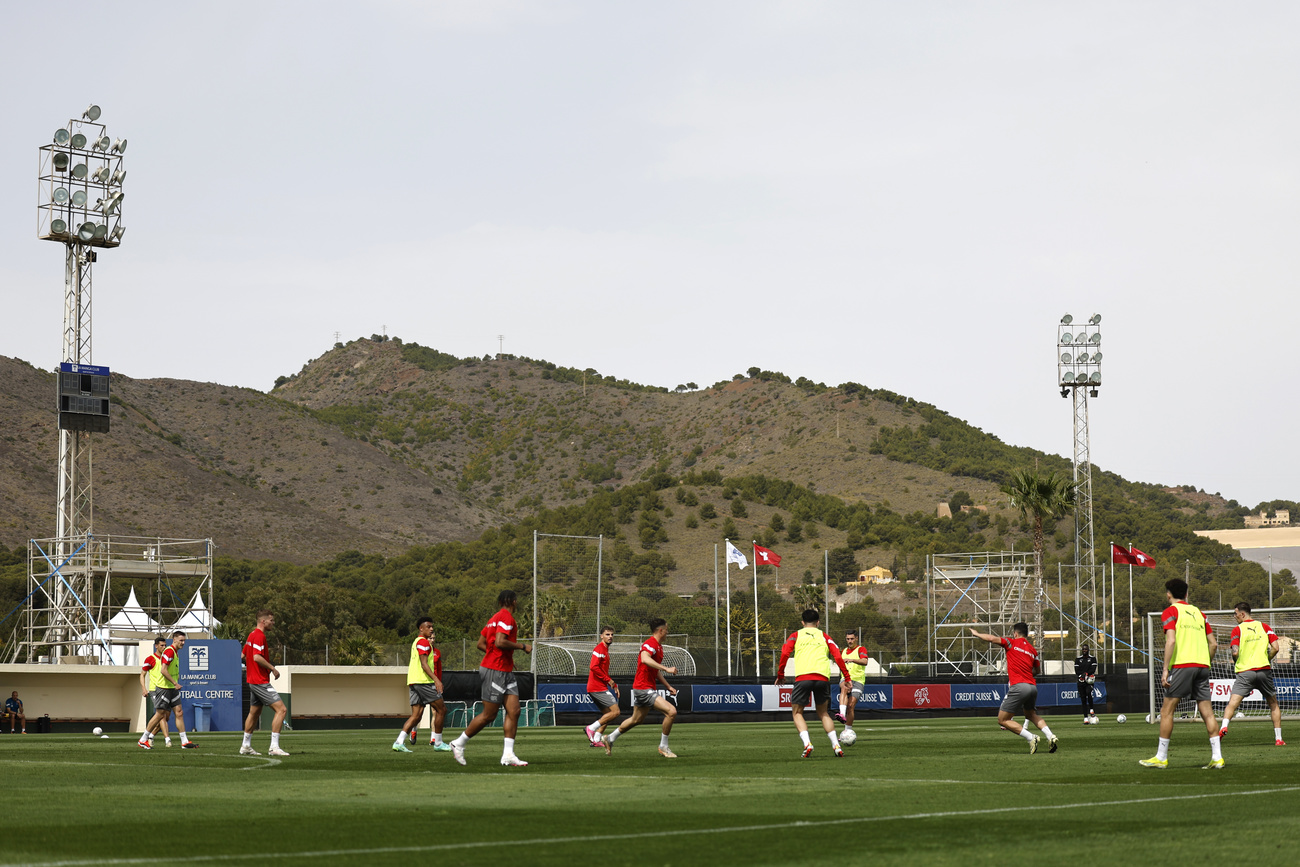

Switzerland Today

In the news: Switzerland becomes more urban, calls for Swiss aid for Palestine, and less paid out in welfare.
Just 14% of the Swiss population now officially lives in the countryside. Rural municipalities nevertheless account for 57% of the country’s surface area, according to the Federal Statistical Office. Cities meanwhile account for only 17% of surface area but are home to 65% of the population and 76% of the workforce. Just 9% of employees work in rural municipalities.
With famine looming in Gaza, 17 aid organisations have called for the rapid release of Swiss funds for the UN Palestinian Relief and Works Agency (UNRWA). A decision from Bern is not expected until later in the year.
In 2022 social assistance payments fell for the fourth year in a row, while the rate of recipients was lower than ever before. Net expenditure amounted to CHF2.5 billion ($2.78 billion) – a decrease of 9.2% compared to the previous year

In 85 days, the Swiss men’s national football team will kick off against Hungary in its first match of Euro 2024. The team has spent this week on the Spanish coast, training and boosting confidence. It needs to work hard on both.
“Spring is the ideal time to get rid of any lingering negative thoughts,” the Tribune de Genève wrote in an editorialExternal link yesterday. “Gone is the qualifying campaign that ended in disaster (one win in the last seven matches, against Andorra); forgotten are the internal squabbles over the personality of the manager. The main thing is already there: a one-way ticket to the continent-wide tournament.”
Switzerland were runners-up (behind Romania) in their qualifying group for Euro 2024, held in Germany from June 14-July 14. It’s fair to say they’re in a slump. After a “heroic” performance at Euro 2020, they appointed a new manager, Murat Yakin, and suffered the “Debacle of Doha” at the 2022 World Cup when they were humiliated 6-1 by Portugal. Since then, as the Tribune de Genève pointed out, they’ve lost that winning feeling.
They’ve fallen to 19th in the FIFA rankingsExternal link – down from 6th in 2018 and 12th a year ago (mind you, that’s still better than the rock-bottom 83rd they hit in 1998). BookmakersExternal link aren’t expecting a deep run in Germany (you can currently get 80-1 on Switzerland to lift the trophy).
“Here are the men who will be carrying the dreams of an entire nation from June 14, tuning their skills in good spirits, sheltered from the turmoil of this world,” the paper said, looking at the training camp in La Manga (pictured), a sunny coastal resort in southeastern Spain. “For most of them, exhausted by their hectic daily lives on Europe’s most prestigious pitches, this could be a magical interlude.”
However, it’s absolutely not a holiday, the paper stressed. “Every touch of the ball, every rehearsed move, every video session, it’s necessary to summon the intensity of a new-found determination. Sure, the squad has to live well, but above all it has to show its teeth.”
Today the players will fly from Spain to Copenhagen for the first of four “friendlies” before Euro 2024 (against Denmark (on Saturday), Ireland (Tuesday), Estonia (June 4) and Austria (June 8).
“Rarely have [friendlies] been so badly named,” the Tribune de Genève declared. “It’s time for the Swiss team to raise their heads and puff up their chests: this golden generation must once again become a respected nation on the continent, the nation that knocked out world champions France at the previous Euro tournament, before pushing Spain to the limit. Spring is the perfect time to send a strong signal to the footballing world.”

The risk of addiction is everywhere. Traditional vices such as cigarettes and alcohol have been joined by snus, e-cigarettes, video games, loot boxes and social media in recent years. Is better prevention necessary or should more sanctions and bans be imposed?
Read up on the topic and join the discussion on “dialogue”, a project run by the Swiss Broadcasting Corporation (SBC), SWI swissinfo.ch’s parent company.
According to the Addiction Switzerland NGO, the mental health of teens and young adults has been getting worse in recent years. “This puts them at greater risk of using psychoactive substances or taking refuge in social media,” the NGO writes in its Swiss Addiction Panorama 2024 – an annual overview of addiction in the country. As a result, the group wants better enforcement of sales bans as well as price increases for problematic products.
What’s your opinion on the issue? Do we need better prevention or tougher sanctions? Join the discussion on our “dialogue” platformExternal link.

In compliance with the JTI standards
More: SWI swissinfo.ch certified by the Journalism Trust Initiative






























